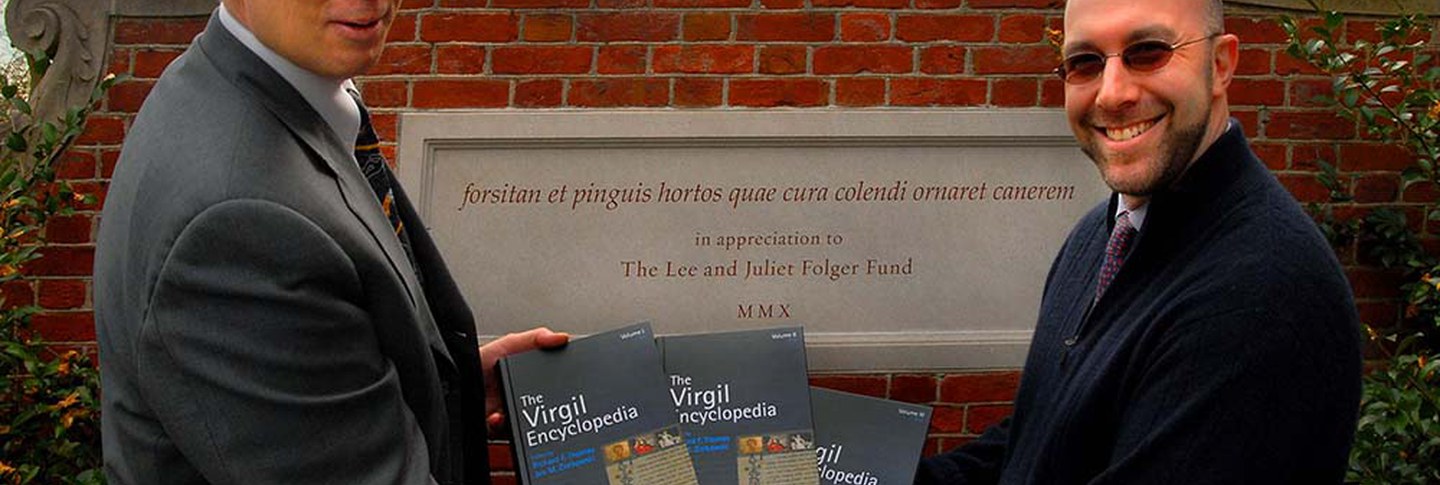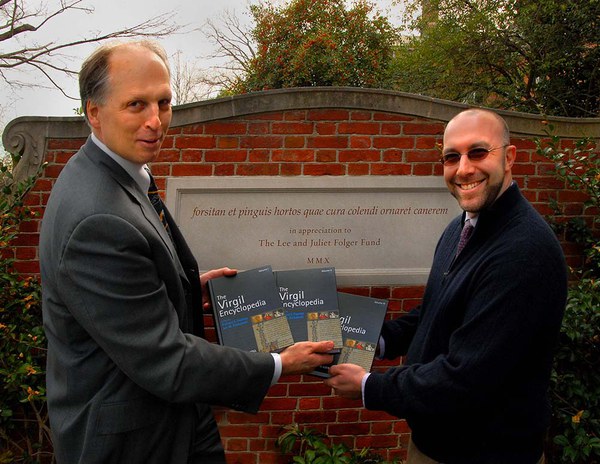Fellows, staff, and visitors to Dumbarton Oaks may have noticed the inscription from Virgil’s Georgics that has adorned the patio outside the Music Room since its dedication in 2010. What they may not have realized is that when proceeding in that general direction from the museum entrance, they pass directly beneath the epicenter of The Virgil Encyclopedia (Chichester, West Sussex, UK: Wiley-Blackwell, 2014). On the Mezzanine, just one floor above the entry foyer, Research Associate and Assistant Editor Michael Sullivan has been engaged in the characteristically Virgilian labor of managing this massive scholarly undertaking, which has now borne fruit in three volumes. The Virgil Encyclopedia is a six-year project consisting of over 2,200 entries on the Roman poet and his legacy, authored by more than 350 contributors and coedited by Director of Dumbarton Oaks Jan Ziolkowski and his Harvard colleague Richard Thomas.
Alas, Virgil was unknown to pre-Columbian cultures, though the Aztec and Mapuche feature prominently in “Latin American Literature.” But all is not lost! In addition to entries on “Byzantine Literature” and “Gardens,” affiliates of Dumbarton Oaks may be particularly interested in those on “Birds,” “Bees,” “Flowers,” “Trees,” “Medieval Art,” “Medieval Literature,” “Late Antique Art,” “Late Antique Literature,” and “Musical Reception,” among others. Whatever one’s point of entry, The Virgil Encyclopedia has much to surprise and delight both the seasoned scholar and the poetic proselyte, as thousands of cross-references direct the reader from general topics, such as the life and works of Virgil himself, to the more specific, such as the medieval legends that grew up around him and Byzantine spoons from the sixth century that bear inscriptions from his works. The editorial team sincerely hopes that The Virgil Encyclopedia will remain for decades to come an essential and pleasurable reference work on the poet who brought tears to Augustine, guided Dante through Hell and Purgatory, and continues to inspire others to this day.

